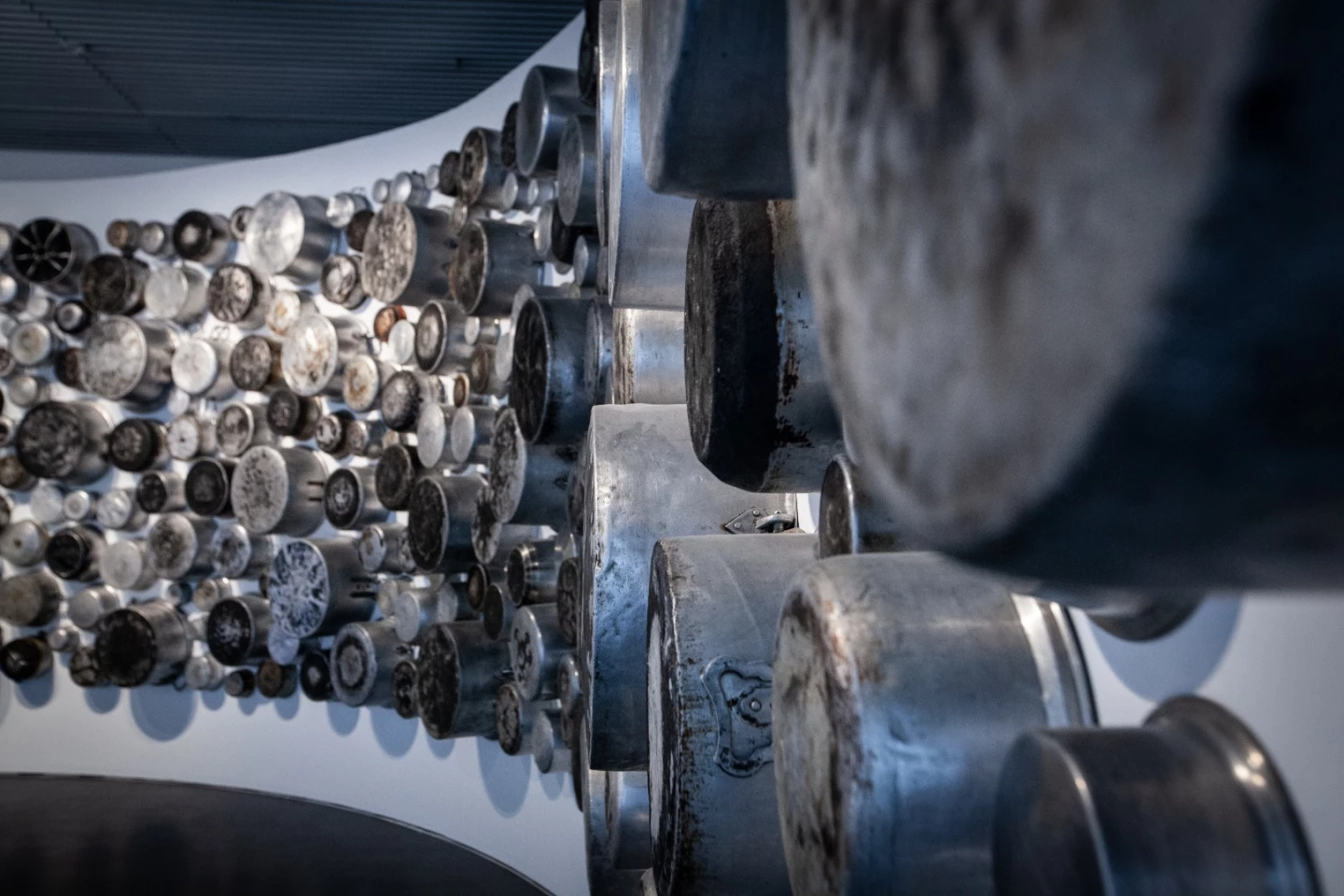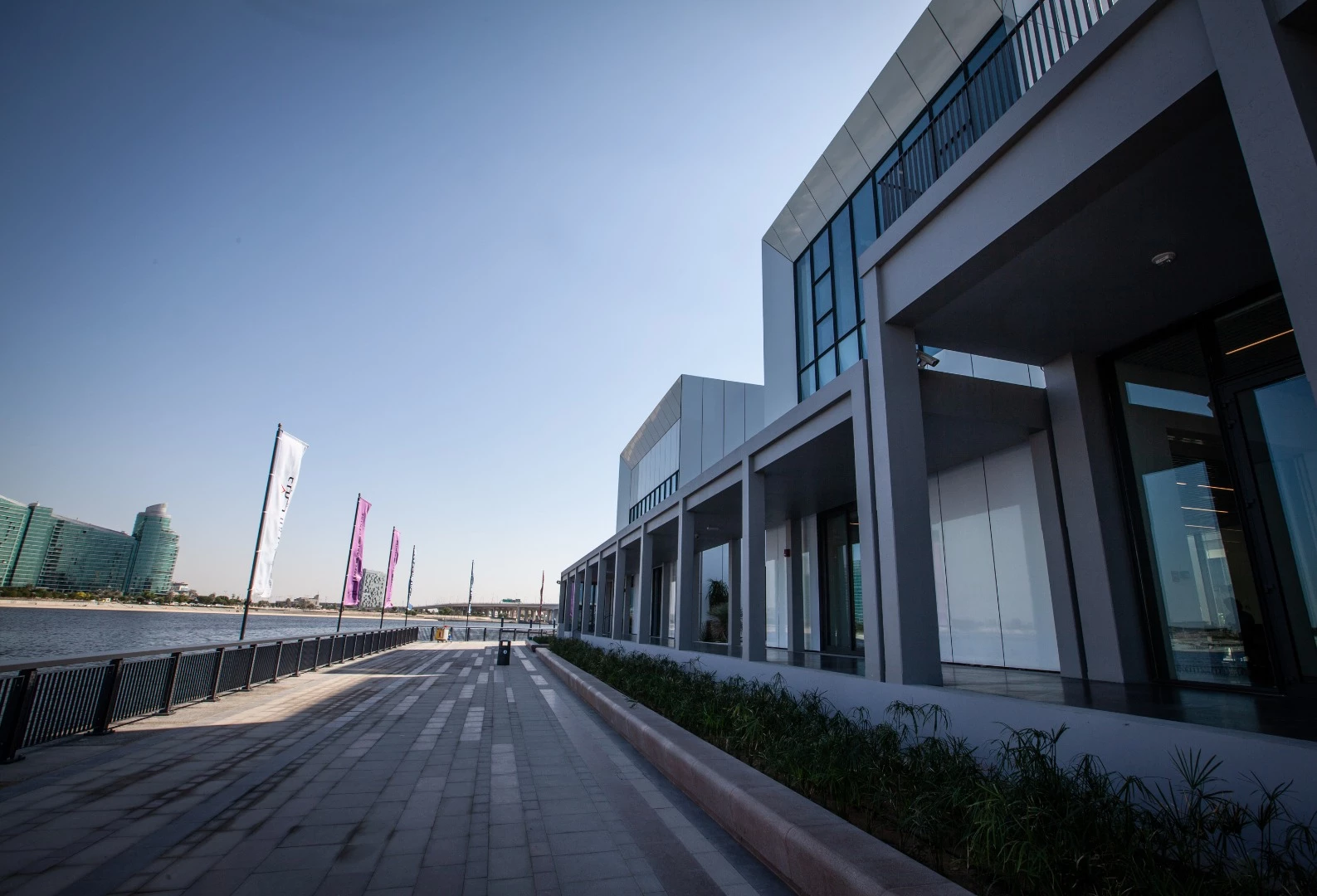Opened last week, the Jameel Arts Centre is the latest impressive building to carry Dubai's ambitions as a cultural destination for the Middle East. Designed by award-winning UK-based firm Serie Architects, the boxy white structure overlooks Dubai Creek and is built to host contemporary art installations, along with workshops and events. New Atlas swung by to check out the opening festivities.
The 10,000-square-meter (107,000-sq-ft) Jameel Arts Centre spreads its 10 gallery spaces over three floors, with courtyards, terraces and desert gardens to be found in between. These gardens feature 33 different species native to deserts all over the world, some of which have actually been rescued from natural habitats destined for destruction. Among those is a Sesame Bush said to be around 300 years old.

The architecture of the building itself also references the traditions of the region, with the clustered white cubes inspired by early Emirati "Sha-abi" – houses consisting of separate rooms enclosing a central courtyard – as well as a style of urban planning known as "Madinat." While striking enough, the Jameel Arts Centre certainly lacks the wow factor of some of Dubai's other architectural offerings, but keeping a low profile was, in a way, part of the brief.
"We worked very closely with Art Jameel, listening to their needs, responding with architectural ideas, and discursively refining them," says Christopher Lee, Principal of Serie Architects. "The architecture that emerged is one that is able to accommodate a wide range of uses and continues to evolve with the city its serves. It acts as a background structure for the life of the centre to unfold, without disappearing from view."

Billed as the first non-governmental contemporary arts institution in the Gulf, the opening exhibits at Jameel Arts Centre do make for an interesting mix of installations. Across from the in-house library and research center, Saudi Arabian artist Maha Malluh decorated a gallery space on the ground floor with huge swathes of discarded junk, such as pots and old cassette tapes of religious sermons. These had been retrieved from flea markets and construction sites and repurposed as art.

Japanese artists Chiahru Shiota, meanwhile, filled an entire room with a sprawling web of yarn, 2,500 balls of it, to be precise. This hangs over the top of an abra boat, a vessel traditionally found on the adjacent Dubai Creek, and is meant to explore ideas around the entanglement of life.

Upstairs was a particularly self-aware exhibition simply titled "Crude." The work of 18 artists both from the region and abroad, the exhibition looks at the role of oil in transforming the Middle East and North Africa, in terms of its positive and negative impacts on politics, culture and economics.
One "Crude" installation is the latest in a series from Emirati artist Hassan Sharif, who looks at his country's transition from a subsistence culture to one of extravagance and the waste that goes with it. This time around his work amounts to a giant pile of discarded sandals and slippers made from petro-derived rubbers and plastics.

The rooftop terrace, meanwhile, is host to a colorful synthetic garden where trees and plants light up in neon after sundown. This terrace overlooks a large plaza at one end and a wooden promenade along the Dubai Creek at the other.

Both outdoor spaces are part of the architects' attempt to make the center blend in with the urban landscape and create a sense of openness and inclusivity. The center's concrete and semi-reflective aluminum cladding is intended to shimmer ever so slightly in response to the surrounding water, though we must say on the sunny day we visited all we saw was an almost-blinding white light.

In the spirit of that inclusiveness, the Jameel Arts Centre is free to enter, with the exhibitions mentioned here running until at least the new year. To see more, you can have a flick through our gallery.
More info: Jameel Arts Centre





























